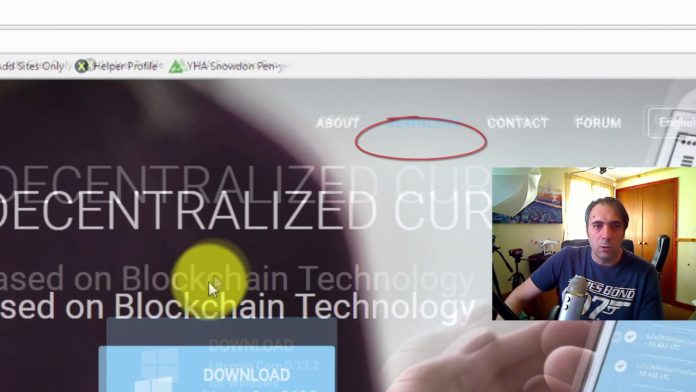ARE YOU RISKING LOSING IT ALL OVERNIGHT? Read on before it’s too late. Diminish your risk by 99.9%
In this video we will walk you through setting up your very own cold storage wallet. But Before diving into the process, you may be wondering what is cold storage?
In simple terms, cold storage refers to keeping your Litecoin Core (LTC) completely offline. Cold storage, also known as a cold storage wallet, is the opposite of a hot wallet where your LTC is kept online. Since Litecoin Core is a digital asset, keeping them online increases your risk or attack surface for having your Litecoin stolen when kept online using a custodial service. By keeping your bitcoin in cold storage, your attack surface is greatly diminished.
Download your Litecoin Cold Storage wallet Here!
How to buy Bitcoin Starting from $2 Click Here!
This is the information I wish I had back when it was the last Bitcoin crash in 2013.
I recommend you read and assess all the information below, so you can make sure that the same thing does not happen to you, by leaving your coins in third party processors, as 99.99 per cent are repeating this mistake right now and risking losing it all overnight.
Bitcoin and Litecoin are cryptocurrencies that enable instant payments to anyone in the world and … Wallet encryption allows you to secure your wallet. After all, it’s up to us to make sure we protect our assets. Don’t let the 2013 Bitcoin crash repeat itself on you.
Get Your Free Litecoin Now – Oh Yes It’s Free! Click Here!
History of bitcoin
In February 2013 the bitcoin-based payment processor Coinbase reported selling US$1 million worth of bitcoins in a single month at over $22 per bitcoin.[41] The Internet Archive announced that it was ready to accept donations as bitcoins and that it intends to give employees the option to receive portions of their salaries in bitcoin currency.[42]
In March the bitcoin transaction log called the blockchain temporarily split into two independent chains with differing rules on how transactions were accepted. For six hours two bitcoin networks operated at the same time, each with its own version of the transaction history. The core developers called for a temporary halt to transactions, sparking a sharp sell-off.[43] Normal operation was restored when the majority of the network downgraded to version 0.7 of the bitcoin software.[43] The Mt. Gox exchange briefly halted bitcoin deposits and the exchange rate briefly dipped by 23% to $37 as the event occurred[44][45] before recovering to previous level of approximately $48 in the following hours.[46] In the US, the Financial Crimes Enforcement Network (FinCEN) established regulatory guidelines for “decentralized virtual currencies” such as bitcoin, classifying American bitcoin miners who sell their generated bitcoins as Money Service Businesses (or MSBs), that may be subject to registration and other legal obligations.[47][48][49]
In April, payment processors BitInstant and Mt. Gox experienced processing delays due to insufficient capacity[50] resulting in the bitcoin exchange rate dropping from $266 to $76 before returning to $160 within six hours.[51] Bitcoin gained greater recognition when services such as OkCupid and Foodler began accepting it for payment.[52]
On 15 May 2013, the US authorities seized accounts associated with Mt. Gox after discovering that it had not registered as a money transmitter with FinCEN in the US.[53][54]
On 17 May 2013, it was reported that BitInstant processed approximately 30 percent of the money going into and out of bitcoin, and in April alone facilitated 30,000 transactions,[55]
On 23 June 2013, it was reported that the US Drug Enforcement Administration listed 11.02 bitcoins as a seized asset in a United States Department of Justice seizure notice pursuant to 21 U.S.C. § 881.[56] This marked the first time a government agency claimed to have seized bitcoin.[57][58]
In July 2013, a project began in Kenya linking bitcoin with M-Pesa, a popular mobile payments system, in an experiment designed to spur innovative payments in Africa.[59] During the same month the Foreign Exchange Administration and Policy Department in Thailand stated that bitcoin lacks any legal framework and would therefore be illegal, which effectively banned trading on bitcoin exchanges in the country.[60][61] According to Vitalik Buterin, a writer for Bitcoin Magazine, “bitcoin’s fate in Thailand may give the electronic currency more credibility in some circles”, but he was concerned it didn’t bode well for bitcoin in China.[62]
On 6 August 2013, Federal Judge Amos Mazzant of the Eastern District of Texas of the Fifth Circuit ruled that bitcoins are “a currency or a form of money” (specifically securities as defined by Federal Securities Laws), and as such were subject to the court’s jurisdiction,[63][64] and Germany’s Finance Ministry subsumed bitcoins under the term “unit of account”—a financial instrument—though not as e-money or a functional currency, a classification nonetheless having legal and tax implications.[65]
In October 2013, the FBI seized roughly 26,000 BTC from website Silk Road during the arrest of alleged owner Ross William Ulbricht.[66][67][68] Two companies, Robocoin and Bitcoiniacs launched the world’s first bitcoin ATM on 29 October 2013 in Vancouver, BC, Canada, allowing clients to sell or purchase bitcoin currency at a downtown coffee shop.[69][70][71] Chinese internet giant Baidu had allowed clients of website security services to pay with bitcoins.[72]
In November 2013, the University of Nicosia announced that it would be accepting bitcoin as payment for tuition fees, with the university’s chief financial officer calling it the “gold of tomorrow”.[73] During November 2013, the China-based bitcoin exchange BTC Chinaovertook the Japan-based Mt. Gox and the Europe-based Bitstamp to become the largest bitcoin trading exchange by trade volume.[74]
In December 2013, Overstock.com[75] announced plans to accept bitcoin in the second half of 2014. On 5 December 2013, the People’s Bank of China prohibited Chinese financial institutions from using bitcoins.[76] After the announcement, the value of bitcoins dropped,[77] and Baidu no longer accepted bitcoins for certain services.[78] Buying real-world goods with any virtual currency had been illegal in China since at least 2009.[79]





























